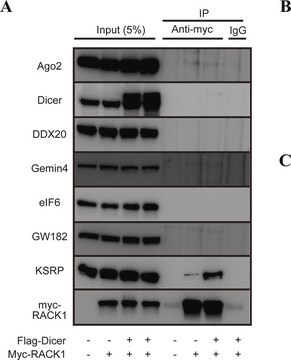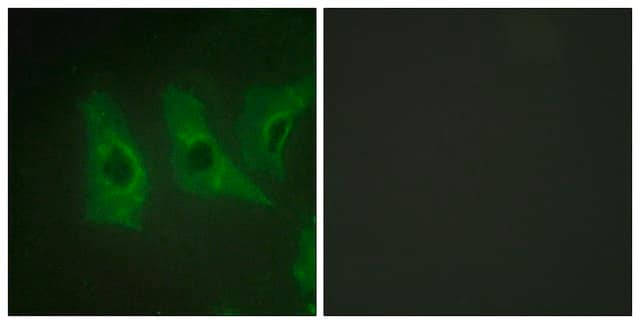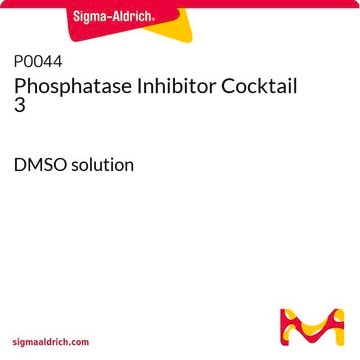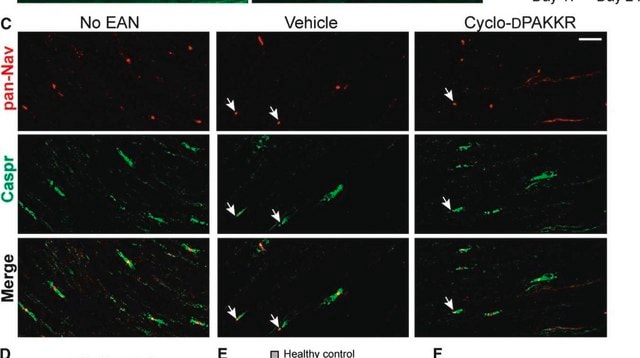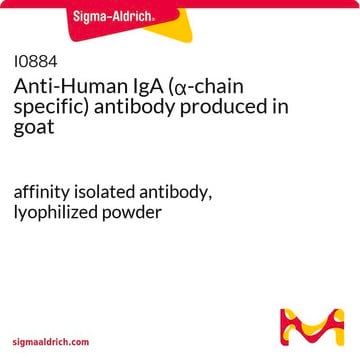05-1431
Anti-Casein Kinase 2α Antibody, 1AD9
clone 1AD9, from mouse
Synonym(s):
CK2 catalytic subunit alpha, CKII alpha, Casein kinase II subunit alpha, Casein kinase 2, alpha 1 polypeptide, Casein kinase II alpha 1 subunit, Casein kinase II-alpha subunit, Protein kinase CK2
About This Item
Recommended Products
biological source
mouse
Quality Level
antibody form
purified immunoglobulin
antibody product type
primary antibodies
clone
1AD9, monoclonal
species reactivity
human, mouse, rat
technique(s)
immunocytochemistry: suitable
immunohistochemistry: suitable (paraffin)
immunoprecipitation (IP): suitable
western blot: suitable
isotype
IgG1
NCBI accession no.
UniProt accession no.
shipped in
wet ice
target post-translational modification
unmodified
Gene Information
human ... CSNK2A1(1457)
General description
Specificity
Immunogen
Application
Immunocytochemistry: A previous lot of this antibody was used at a dilution of 5 μg/mL (acetone or methanol fix only).
Optimal working dilutions must be determined by end user.
Immunohistochemistry(paraffin): Representative testing from a previous lot.
Optimal Staining of Casein Kinase 2 Monoclonal Antibody: S-KB-3 Cells
Signaling
Apoptosis & Cancer
Developmental Signaling
Quality
Western Blot Analysis: 1:500 dilution of this lot detected Neurofilament on 10 μg of PC12 lysates.
Target description
Linkage
Physical form
Storage and Stability
Analysis Note
HeLa cell lysate
Other Notes
Disclaimer
Not finding the right product?
Try our Product Selector Tool.
Storage Class Code
12 - Non Combustible Liquids
WGK
WGK 2
Flash Point(F)
Not applicable
Flash Point(C)
Not applicable
Certificates of Analysis (COA)
Search for Certificates of Analysis (COA) by entering the products Lot/Batch Number. Lot and Batch Numbers can be found on a product’s label following the words ‘Lot’ or ‘Batch’.
Already Own This Product?
Find documentation for the products that you have recently purchased in the Document Library.
Our team of scientists has experience in all areas of research including Life Science, Material Science, Chemical Synthesis, Chromatography, Analytical and many others.
Contact Technical Service
